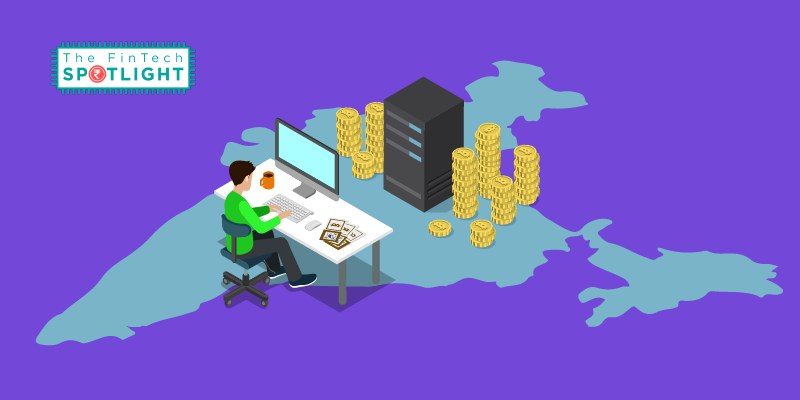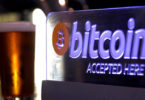The revolution of blockchain is upon us, with the smartest and brightest minds in the world trying to work out its implications and its application. So far its widely-known application has been on Bitcoin, the crypto currency created in 2009 by a person using the alias ‘Satoshi Nakamoto’. Bitcoin enables decentralized transactions without any credit card or central bank intervention. It allows users to transfer currency with the help of the Internet, and blockchain is the underlying technology that helps clearing transactions and supports the process of mining and pricing bitcoins.
It is critical to secure bitcoin wallets from hackers. Bitcoin transactions are not reversible and are anonymous with a two-factor authentication, thereby making it safe. But the backup location should also be protected,” says Rajashekara V. Maiya, AVP and Head – Finacle Product Strategy, EdgeVerve.
Every time a transaction happens, it needs to be verified and validated between the members of a network. The process of verification is carried out by ‘miners’ who create a ‘block’ of all the transactions occurring over the bitcoin network in every few minutes. The banks/ members of the network only are privy to the transactions performed, under blockchain technology.
Blockchain technology is a distributed ledger technology that allows banks to modernize legacy processes, reduce costs, enhance operational efficiency and provide authenticity of transaction data. However, it should be remembered that blockchain-based applications cannot be used by a bank in isolation. A network of banks should be in agreement to leverage this technology. It dissuades the need for any central authority.
Why India needs Bitcoin?
Given that 60 percent of the population in India is unbanked, Prime Minister Narendra Modi and Reserve Bank of India uphold financial inclusion as top priority. Therefore, India is viewed by many to have significant potential for Bitcoin usage and adoption. The primary ways to obtain Bitcoin are buying on an exchange, mining new ones and accepting them for goods and services.
A financial infrastructure based on Bitcoin and its underlying technology blockchain is likely to herald a revolution like Internet did. The stored currency notes can be stolen easily but one can recover Bitcoin wallet at any point of time by locating wallet words or wallet backup folder. Bitcon was fundamentally created to solve the problem of creating a digital property such a decentralized digital ledger, keeping track of all transactions and retaining the accuracy of the data.
World Bank’s annual report stated that India was the world’s largest remittance recipient in 2015, despite experiencing a $1-billion drop from the previous year, the first decline in its remittances since 2009. India retained its top spot in 2015, attracting about $69 billion in remittances, down from $70 billion in 2014.
“In India, which happens to be the biggest market for remittance at over $70 billion, the highest transaction amount is as low as $200. Even for such amounts, users pay about 15 percent fees to the banks or other intermediaries. Once implemented, blockchain can allow the remitters to save about $7 billion. As compared to China, which does over Rs 10,000 crore per day, India is still at a nascent stage for adoption of blockchain,” says Rajashekara.
State of Bitcoin adoption in India
Bitcoin witnessed a slow beginning in India. However, banks are now acknowledging its advantages. According to an analyst, Bitcoin trade in the country has grown rapidly, at an estimated Rs 500 crore per year, with 50,000 Bitcoin wallets and over 700-800 Bitcoins being operated every day.
“The global Bitcoin trade is skyrocketing, touching $35 billion per month in December 2015. Billion-dollar companies like Dell, Expedia, Overstock, Rakuten (Japan’s Flipkart) have started accepting Bitcoins on their websites. Bitcoin companies raised almost $1 billion in VC funding in 2015,” says Saurabh.
Mohit Kalra, Founder and CEO of Coinsecure, is of the view that 2016 will also witness a growth of use of Bitcoin for services such as remittance, charitable donations and international payment gateways. Delhi-based Coinsecure offers an algorithmic trading bitcoin exchange, a blockchain explorer, free APIs for all their products. Recently, it raised over $1.2 million from angel investors.
Supply and demand of Bitcoin
Since the mining industry is not as strong in India as it is globally, the country has witnessed a huge demand. Owing to the dearth of supply, Bitcoin prices sometimes go up to 3-4 percent, as compared to global exchanges such as Bitstamp or BTC-E. The need of the hour is to develop a strong Bitcoin industry in India, to bridge the demand-supply gap and prevent users from relying on global sources.
The supply of Bitcoin is limited to 21 million units and approximately 15 million are already in circulation, as per various reports. Until mid- 2016, the Bitcoin mining reward was 25 bitcoins per block (approximately every ten minutes) and is scheduled to halve to 12.5 Bitcoins per block for four years. On July 9, the Bitcoin mining reward dropped by 50 percent and has been reduced to 12.5 BTC, which may have significant impact on the miners.
Legality of Bitcoin in India
In 2013, the Deputy Governor of the Reserve Bank of India ruled out the adoption of Bitcoin, making a statement that RBI had no plans to regulate it. The concept of cryptocurrency and Bitcoin is still in its nascent stage in India and does not have regulatory clarity.
According to Nishith Desai, Founder of law firm Nishith Desai Associates, Bitcoin are not illegal in India and this is in consonance with an international approach.
A proper regulatory framework around Bitcoin will automatically increase the adoption rate among merchants and consumers in India. RBI governor Raghuram Rajan had noted in a statement that digital currencies such as Bitcoin would be helpful in the transition towards a cashless society.
The white paper by Nishith Desai Associates on Bitcoin stated that the recent past has seen an enormous growth in Bitcoin as a form of payment. This is because the fee charged in case of making payments with the use of Bitcoin is lower than the general 2-3 percent interest imposed by credit card processors.
The RBI, which has not yet come out with an ultimate verdict, has issued a press release cautioning users, holders and traders of virtual currencies about the potential financial, operational, legal and security related risks.
Top cities in terms of trading over the past six months are Mumbai, Delhi, Pune, Bengaluru, Hyderabad, Kolkata, and Chennai,” says Sathvik Vishwanath, Co-founder, Unocoin. a bitcoin service provider which has more than 80,000 users and its web traffic has increased to more than 1,000 per cent over the last one year. Unocoin offers people Rs 200 for free on signing up.
Propelling the future of business
Recently, Infosys launched a blockchain framework at Finacle to allow customers to overhaul and simplify complex, transaction-driven services. This is a permitted ledger, which will help banks deploy blockchain-based services for various business areas. It also offers support to international, cross-border transactional business and enables secure, peer-to-peer transactions that can be verified without any centralised authority.
Our blockchain solutions development is undertaken in R&D centres in India and Ireland. We have over 40 employees certified in this technology from Blockchain University in US. Further, it can be applied across several industries, in addition to the financial sector and enable the company to co-innovate with clients,” says Rajashekara.
IBM in its recent study on blockchain revealed that financial services, supply chains, Internet of Things (IoT), risk management, digital rights management and healthcare are some of the areas that are poised for dramatic change using blockchain networks. With its open source contributions and resources for blockchain software developers, IBM is advancing the science of blockchain to remove complexity, making it more accessible.







